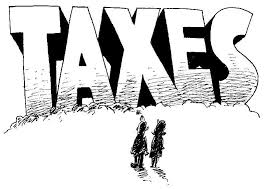Mayor Paul Dyster’s $91 million proposed budget for 2017 includes some hefty raises for several staffers, including his own secretary, and is coming under fire from from a former city economic development chief who called the proposed salary hikes “a slap in the face” to the taxpayers of the city during these difficult times.
Ralph Aversa, who is also a former city councilmember, posted his own review of the Dyster spending plan on Facebook, singling out the following pay upgrades contained in the proposal:
– mayor’s secretary, on the job for less than a year, increased by 43 percent from $40,540 to $58,001
– city administrator, on the job for less than four months, increased by 13.3 percent from $75,000 to $85,000
– city administrator’s secretary, increased by 18.4 percent, from $40,539 to $48,000
– city assessor, increased by 10.5 percent from $64,485 to $71,335
In his Facebook comments, Aversa says “let’s see how many councilmembers will ‘rubber stamp’ this [spending plan] for the mayor?”
Initial reaction from the chairman of the city council suggests Aversa’s message has hit a nerve and lawmakers will be looking very closely at all of the increases as well as the nearly 6 percent bump in the tax rate for businesses.
“Looking at the raises, we were kind of startled,” said Council Chairman Andrew Touma on Wednesday. “We were surprised that the raises were so high and we are examining them as well as other areas in the budget. The amendment process has already begun.”
While the Dyster proposal would cut the tax rate on homeowners by 4.58 percent, Touma said his goal is to reduce the proposed hike in the business tax rate and “not have a tax increase for anyone.”
The council must also deal with the mayor’s proposal to use $188,486 from the general fund to subsidize the new train station which still does not have a tenant.
Touma said the council is hopeful that the Dyster administration can finally close on a deal with Amtrak and find other tenants to fill the empty space that will help pay for the station’s annual cost of more than $380,000.
“We still have time to deal with that [train station],” says Touma, noting the council has until Dec. 1 to adopt a budget and he’s hopeful that the council will also be able to find resources after the departmental budget reviews that have already begun to cover the three new positions that Dyster has budgeted for operation and maintenance of the train station. Dyster says that a deal with Amtrak is “close,” although it has been “close” for some time (remember Hamister?).

Mayor Paul Dyster, who enjoys a brew as well as the next guy, even at his office, wants to raise taxes and raise salaries. And why not? The city is in such sterling financial condition, we should give raises all around…
On his Facebook page, Aversa noted the absence of a lease, and quoted Dyster from a television interview this week. When asked why a lease wasn’t in place before the train station was built, Dyster responded, according to Aversa, that you couldn’t negotiate without a station, but in his comment, Aversa said “when the Public Safety Building was constructed the lease with the NYS Unified Court System was in place prior to the start of the building.”
The new train station had been scheduled to debut on July 30. It is still empty and a continuing issue for lawmakers who have to somehow deal with it in the budget, although as Touma says, they have several weeks to hope for a deal.
Perhaps the best news in the Dyster budget proposal for many Niagara Falls residents is the fact there is no money set aside for a citywide property reassessment, a plan which appears to have hit a political brick wall given strong taxpayer opposition and a nearly $1 million price tag.






















